Ocean Update
The safety of our vessels, seafarers and customers’ cargo continues to be our priority amid the ongoing situation around the Red Sea / Gulf of Aden. We are monitoring developments closely and will communicate any new information with customers as soon as possible. Please click here for more details on contingencies, surcharges, and service updates.
Nearby Egypt, meanwhile, is looking to tackle persistent inflation by increasing interest rates and shifting to flexible exchange rates. The immediate impact of the decision has seen the Egyptian Pound weaken in early March, and while it’s difficult to foresee the long-term implications, we expect a boost in Egypt exports and a potential reduction in imports due to uncertainty. We will keep a close eye on the circumstances and look to minimise any potential supply chain impact on our customers.
Elsewhere, the fruit and vegetables export season out of Europe continues to be strong, and we are expecting volumes to continue to be high until the end of May 2024. Maersk implemented a number of measures to ensure reefer containers are readily available for customers despite a shortage in the industry, and we are committed to providing equipment through the peak season and beyond to get commodities on shelves at the right time.
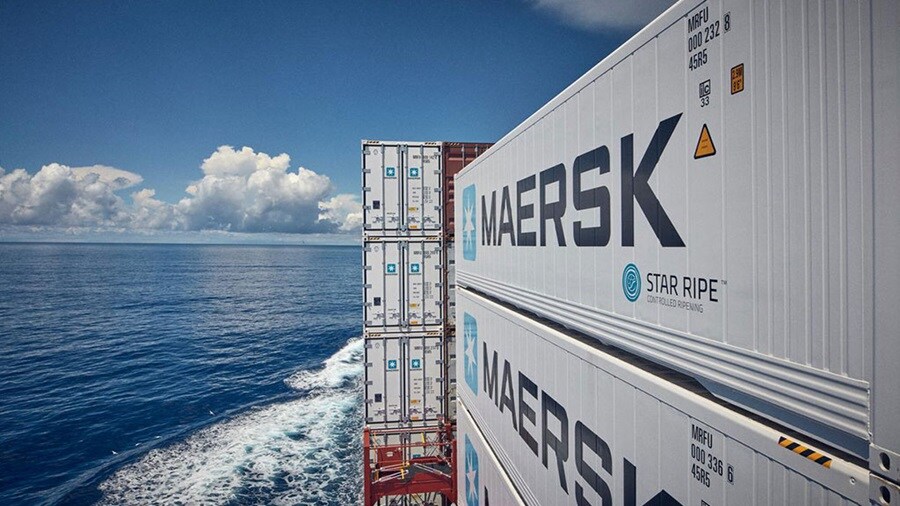
The end of fruit and vegetables peak season will also spark the start of summer, and this year’s warmer weather could bring opportunities for businesses in Europe with the European Football Championship taking place in Germany followed by the Summer Olympics in Paris.
Sporting events typically have a significant impact on local consumption, as they attract large crowds of spectators who contribute heavily to the local economies. They also have a ripple effect on global trade given the increased demand for merchandise, promotional items and other products associated with the events.
Previous Olympics and major football tournament years have warranted a spike in container traffic, and we are expecting data to be similar in 2024. Our teams are on hand to discuss how your business can maximise the benefits of the upcoming events and get products to the right markets at the right time.
Key Ports Update
The interim network built around the ongoing situation around the Red Sea is now finalised and implemented, however it remains in a transition period where the old and new network are interchanging. Although minor disruptions are possible for another two weeks, our teams continue to focus on eliminating their impact to customers and safeguard a smooth flow of cargo.
Hub terminals in the south of Europe are showing stable performance with good operational outcome, including Algeciras with the ongoing yard repair work. In the north of the continent, Hub terminals are facing compounded effects of the delayed network surrounding the Red Sea situation and rough weather in the Bay of Biscay in late February and early March. Our teams expect to see network recovery in week 12, however seeing as Europe continues to experience winter weather conditions, minor disruptions are still possible throughout the quarter. To do our utmost in mitigating these risks, our teams are focused on pre-planning contingencies wherever possible.
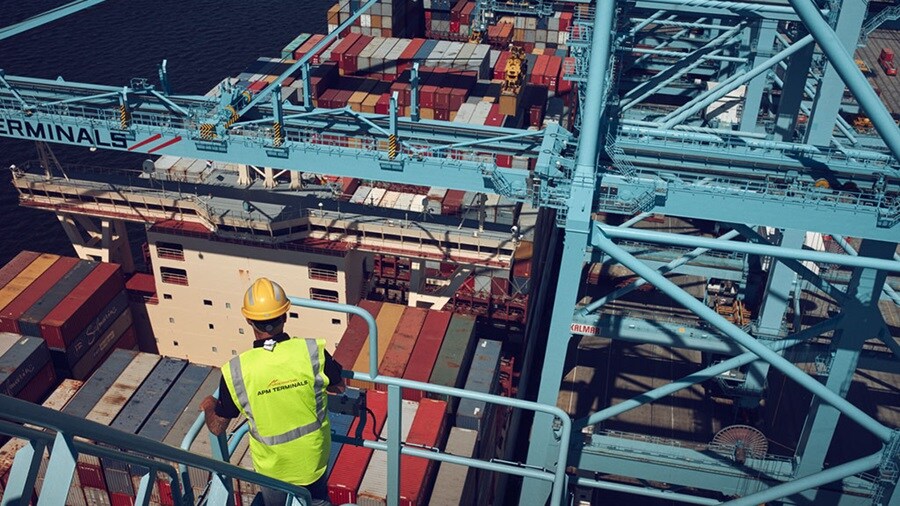
The ripple effect of these events has led to an unstable flow of cargo in the past weeks, and consequently we are now seeing increased yard densities across the board. To support healthy yard density across the terminals, we kindly ask customers to please pick up their units as soon as possible after discharge, as well as to clear their longstanding units. For export customers out of Rotterdam Maasvlakte II, please note that no early deliveries will be accepted to maintain yard density within operational limits.
The Port of Rotterdam is also making changes in import container release process, to continue providing a safe port-related distribution process in the Netherlands.
This means that as of 31 March, Secure Chain, an extension to the existing Portbase services used for container release, will become the only platform to share release rights for cargo from Latin America. Find out more about the process, and what you need to do to stay compliant, on our Secure Chain advisory page.
With public holidays across the continent approaching, our teams are planning contingencies to accommodate reduced labour availability and any planned port closures. Contingencies for the Holy Month of Ramadan, Eid celebrations, and Easter holidays have been concluded internally taking into account the new Red Sea network and we plan to share plans with customers as soon as possible.
Air Freight Update
Disruption around the Red Sea / Gulf of Aden has seen demand for our Sea-Air solution continue to rise. Customers are able to discharge westbound ocean freight at our hubs in Dubai, Muscat and Salalah and complete the journey into Europe at speed using air freight – avoiding vessel diversions around the Cape of Good Hope.
The industry overall has seen a significant spike in sea-air transportation, with Dubai to Europe air cargo traffic reportedly 154% up in week 9 over the same period in 2023.
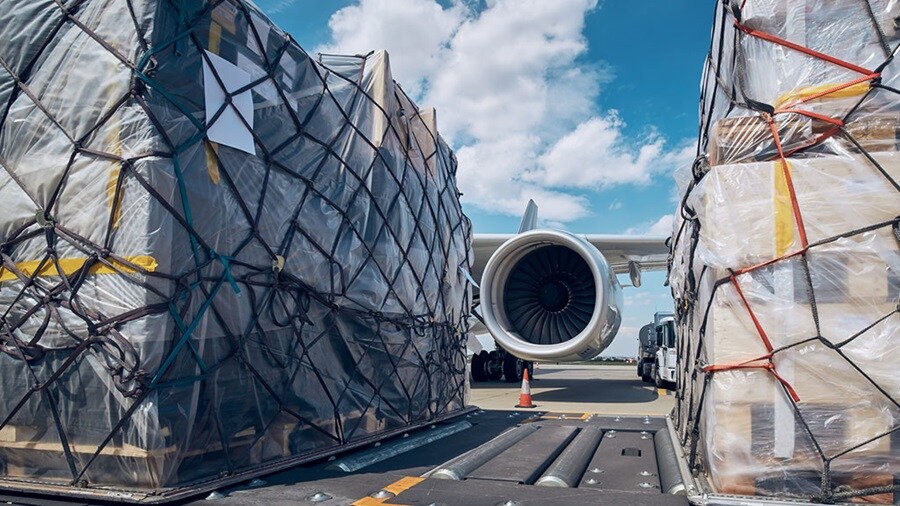
Ocean to air conversions and Maersk’s charter services for both European import and export have also been increasing in recent weeks, as businesses continue to use air freight as a fast and consistent mode of transport. Please reach out to your local Maersk representative to understand air freight could benefit you.
Away from the Red Sea, there have been a number of strikes in Germany by personnel from major carrier Lufthansa, with more reportedly due through March. Our teams are keeping a close eye on the developments, but as yet there has been no impact on Maersk air operations.
Please click here to find helpful information about our air freight network and our services to and from Europe.
Inland Update
The ongoing strike action of the GDL Union, with the latest 24-hour strike that started on Monday 11 March, is impacting inland flows across Germany, Austria, and Switzerland. Although Maersk teams are doing their utmost to support customers with alternative schedules and flows where possible, we might still observe some short-term impacts of these disruptions. Our teams continue to focus on coordinating all affected flows and sharing contingency plans with customers as soon as they are finalised. For any questions, please don’t hesitate to get in touch with your usual Maersk contact.
For inland freight transportation across Europe, road transport remains the most prevalent option - in France, for example, over 87% of total inland freight transport happens across roads, while in Spain, that number goes above 95%. To make other modes, such as rail transport, more attractive to businesses, connections between key locations and markets need to improve. At Maersk, our teams have identified the need to offer alternative options for connecting Spain and France and have recently launched a new offering that connects Barcelona to the South of France.
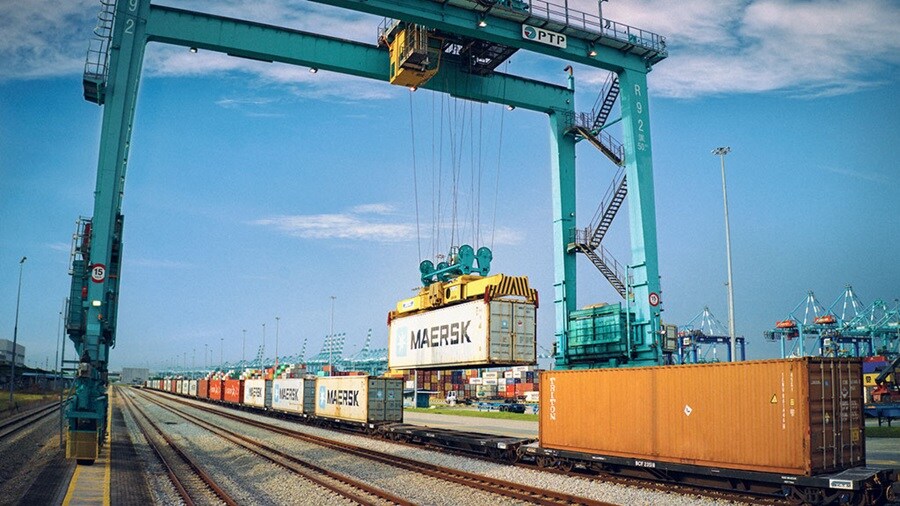
The new electrified connection offers capacity with a direct connection for both ocean cargo via the Port of Barcelona, as well as continental cargo from Spain or France. The rail service can also connect to our recent Morocco Bridge solution to provide coverage between Morocco and France. For businesses, using intermodal transport solutions can facilitate faster transit times and enhance flexibility, ensuring uninterrupted cargo flow, even during disruptions, while enabling quicker product delivery to the final market.
Find out more about Maersk’s inland transportation solutions across Europe.
Customs Update
The Council and the European Parliament have provisionally agreed to ban products from the EU market that are made using forced labour, aiming to dismantle the business model of companies exploiting workers.
The agreement clarifies responsibilities, introducing a database on forced labour risks and criteria for assessing violations. Investigations will be led by relevant authorities, with final decisions to ban or dispose of products based on mutual recognition among member states. Economic operators will be involved throughout the process, and the agreement awaits formal adoption by both institutions. Click here for more information.
Products arriving in the United States of America are subject to similar protocol, with the Uyghur Forced Labour Prevention Act (UFLPA) mandating US Customs and Border Protection (CBP) to seize goods produced in Xinjiang, China, or by entities on the UFLPA Entity List.

Importers must prove diligence in supply chain tracing to avoid importing forced labour goods. CBP has already detained $2.6 billion worth of goods from over 7,000 shipments, affecting electronics, apparel, footwear, industrial, and manufacturing sectors.
Maersk Atlas, powered by Altana, is a solution merging Maersk’s capability as the leading integrator of logistics, with the Altana Atlas, the only dynamic, intelligent map of the global supply chain. By utilising the Maersk Atlas, importers can harness AI to gain comprehensive insights into their supply chains, effectively manage risks, and establish reliable partnerships. This solution not only aids in compliance with UFLPA but also other incoming regulations that require visibility and risk assessment across your multi-tier supply chain.
Ecommerce Update
The start of the year presented a challenge for last mile across multiple countries thanks to strike action in parcel delivery and transport industries. When an average of 27.3% of all ecommerce orders in Europe involves cross-border transport, disruptions in one market could have a ripple effect on deliveries in another. Online retailers in Europe have experienced these ripple effects as strikes caused delays in deliveries to consumers, resulting in a drop of end-consumer satisfaction – almost half of international shoppers said a delivery time that meets their expectations is a leading factor that would affect their repurchasing decision.
To try to minimise the effect of these disruptions on deliveries to end consumers, online retailers need to adopt a more flexible approach to their delivery options. Instead of relying on a single service provider, online retailers should consider having a multi-carrier solution, which can minimise the impact of disruption. At a time when one carrier is facing challenges, businesses can switch to another provider to ensure continuity of their deliveries.
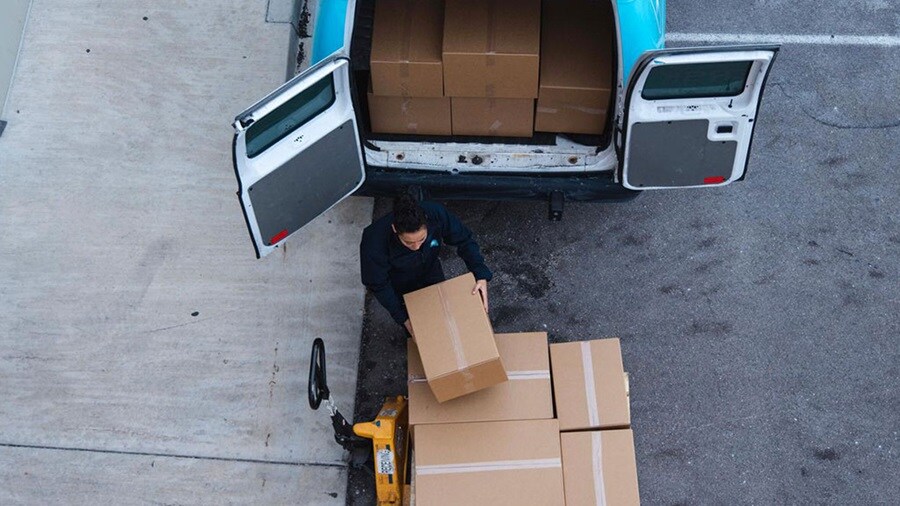
Besides increasing resilience, multi-carrier approach to last-mile delivery can help boost consumer satisfaction and retention by offering a variety of delivery options, timings, and pick-up-drop-off (PUDO) locations. By empowering consumers to choose the options most suited to them and their lifestyle, businesses can increase satisfaction and decrease instances of contacting customer service about delivery times and locations.
To find out more about multi-carrier solutions for your business, get in touch through our E-Delivery page. To discuss the best last-mile delivery options for your business in person, reach out and book a meeting with our team at DELIVER Europe in Amsterdam on 5 and 6 June.
Useful Links
To sign up for the Maersk Europe customer newsletter, click here and update your preferences when prompted via email.
Check Maersk market updates from across other regions by clicking here.
无论您需要什么,我们都可以随时为您提供帮助
I agree to receive logistics related news and marketing updates by email, phone, messaging services (e.g. WhatsApp) and other digital platforms, including but not limited to social media (e.g., LinkedIn) from A. P. Moller-Maersk and its affiliated companies (see latest company overview). I understand that I can opt out of such Maersk communications at any time by clicking the unsubscribe link. To see how we use your personal data, please read our Privacy Notification.
By completing this form, you confirm that you agree to the use of your personal data by Maersk as described in our Privacy Notification.
